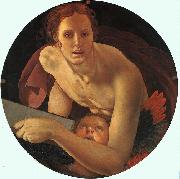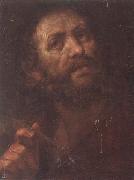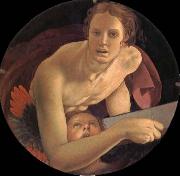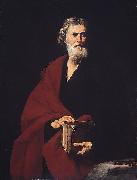
|
Joachim Patenier
|
|||
|
|
|||
| 1480-1525 Flemish Joachim Patenier Galleries was a Flemish Northern Renaissance history and landscape painter. He was probably the uncle of Herri met de Bles, with whom he helped establish a distinct style of northern Renaissance landscapes. | |||
|
|
|||
|
Saint Matthew Joachim Patenier5.jpg Painting ID:: 1595 |
1527-28 Santa Felicita, Florence | ||
|
|
|||
|
unknow artist
|
|||
|
|
|||
|
|
|||
|
Saint matthew new3/unknow artist-278396.jpg Painting ID:: 27513 |
mk56 oil on panel,unframed | ||
|
|
|||
|
Jacopo Pontormo
|
|||
|
|
|||
| Italian 1494-1557 Jacopo Pontormo Galleries Italian painter and draughtsman. He was the leading painter in mid-16th-century Florence and one of the most original and extraordinary of Mannerist artists. His eccentric personality, solitary and slow working habits and capricious attitude towards his patrons are described by Vasari; his own diary, which covers the years 1554-6, further reveals a character with neurotic and secretive aspects. Pontormo enjoyed the protection of the Medici family throughout his career but, unlike Agnolo Bronzino and Giorgio Vasari, did not become court painter. His subjective portrait style did not lend itself to the state portrait. He produced few mythological works and after 1540 devoted himself almost exclusively to religious subjects. His drawings, mainly figure studies in red and black chalk, are among the highest expressions of the great Florentine tradition of draughtsmanship; close to 400 survive, forming arguably the most important body of drawings by a Mannerist painter. His highly personal style was much influenced by Michelangelo, though he also drew on northern art, primarily the prints of Albrecht Derer. | |||
|
|
|||
|
Saint Matthew new19/Jacopo Pontormo-239897.jpg Painting ID:: 51770 |
nn09 c.1527-28 Oil on wood | ||
|
|
|||
|
Jusepe de Ribera
|
|||
|
|
|||
| 1591-1652 Spanish Jusepe de Ribera Galleries Jusepe de Ribera (January 12, 1591 - 1652) was a Spanish Tenebrist painter and printmaker, also known as Jos?? de Ribera in Spanish and as Giuseppe Ribera in Italian. He was also called by his contemporaries and early writers Lo Spagnoletto, or "the Little Spaniard". Ribera was a leading painter of the Spanish school, although his mature work was all done in Italy. In his earlier style, founded sometimes on Caravaggio and sometimes on the wholly diverse method of Correggio, the study of Spanish and Venetian masters can be traced. Along with his massive and predominating shadows, he retained from first to last a great strength in local coloring. His forms, though ordinary and sometimes coarse, are correct; the impression of his works gloomy and startling. He delighted in subjects of horror. In the early 1630s his style changed away from strong contrasts of dark and light to a more diffused and golden lighting. Salvator Rosa and Luca Giordano were his most distinguished followers, who may have been his pupils; others were also Giovanni Do, Enrico Fiammingo, Michelangelo Fracanzani, and Aniello Falcone, who was the first considerable painter of battle-pieces. Among Ribera's principal works could be named "St Januarius Emerging from the Furnace" in the cathedral of Naples; the "Descent from the Cross" in the Certosa, Naples, the "Adoration of the Shepherds" (a late work, 1650), now in the Louvre; the "Martyrdom of St Bartholomew" in the Prado; and the "Pieta" in the sacristy of San Martino, Naples. His mythologic subjects are often as violent as his martyrdoms: for example, "Apollo and Marsyas", with versions in Brussels and Naples, or the "Tityus" in the Prado . The Prado and Louvre contain numbers of his paintings; the National Gallery, London, three. He executed several fine male portraits and a self-portrait. He was an important etcher, the most significant Spanish printmaker before Goya, producing about forty prints, nearly all in the 1620s. | |||
|
|
|||
|
Saint Matthew new23/Jusepe de Ribera-854393.jpg Painting ID:: 69455 |
oil on canvas painting by Jusepe de Ribera | ||
|
|
|||
|
Also Buy::. For Following Paintings / Artists / Products, Please Use Our Search Online: |











